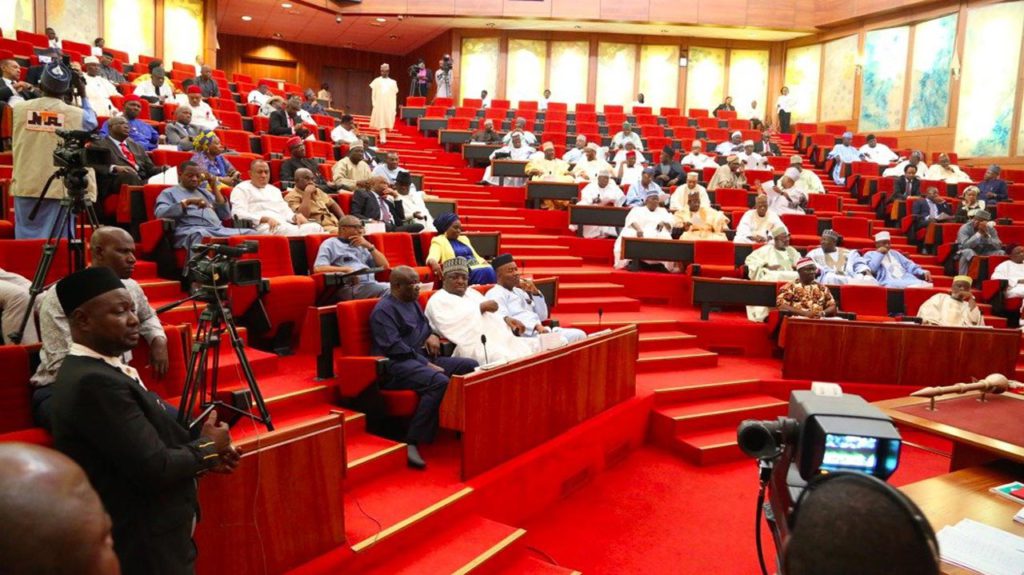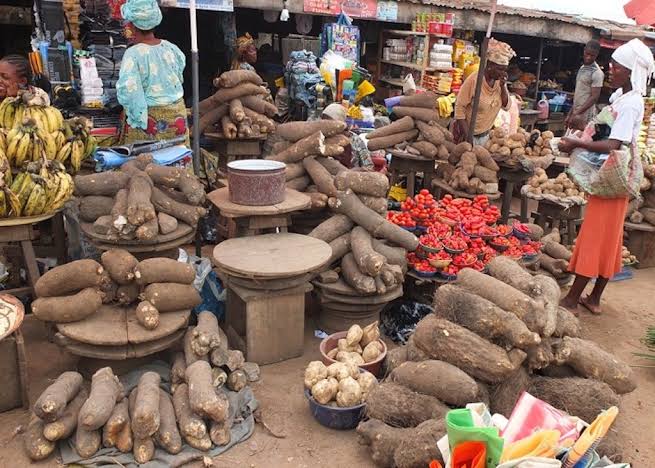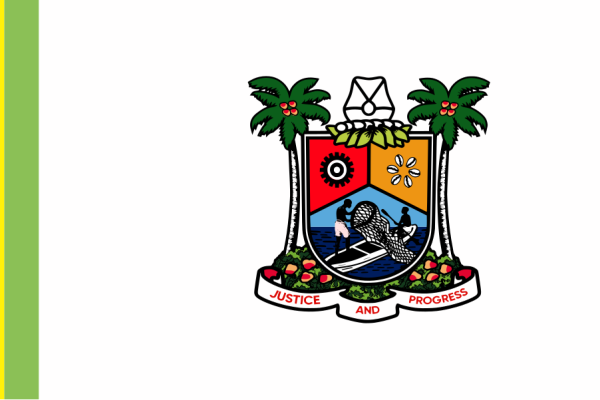- The Senate passes a bill prescribing a 14-year jail term for sexual harassment in schools
- Petrol imports drop 80% as new tariff pushes for local refining
- Indigenous Contractors protest at the National Assembly over unpaid debts
- FG reaffirms readiness to partner with the US in the fight against terrorism
- Food imports soar to ₦677bn as local production struggles
Across Nigeria’s 36 states and the Federal Capital Territory, these are the top five Nigerian news stories you shouldn’t miss.
The Senate passes a bill prescribing a 14-year jail term for sexual harassment in schools

The Senate has approved the Sexual Harassment of Students (Prevention and Prohibition) Bill, 2025, which proposes up to 14 years in prison for lecturers and educators found guilty of sexually harassing students in tertiary institutions.
Deputy Senate Leader Lola Ashiru, who presented the bill for concurrence on Wednesday, said it aims to protect students, uphold ethical standards, and preserve trust within academic settings.
The law prescribes a minimum of five years’ imprisonment without an option of fine for serious offences, while lesser violations attract two to five years. It also empowers victims to seek civil remedies for breach of fiduciary duty.
Petrol imports drop 80% as new tariff pushes for local refining

Nigeria’s petrol importation has fallen by nearly 80% following the introduction of a 15% import tariff on refined petroleum products, according to the Crude Oil Refiners Association of Nigeria (CORAN).
CORAN’s Publicity Secretary, Eche Idoko, said the new policy, alongside other government reforms, was driving a major shift in the downstream oil market and easing pressure on the naira. He praised President Bola Tinubu’s administration for its bold economic decisions, including subsidy removal and the naira-for-crude exchange policy.
Idoko added that these reforms were gradually positioning Nigeria as a refining hub for West Africa while helping the country retain more of its oil revenue.
Indigenous Contractors protest at the National Assembly over unpaid debts

Protests by members of the All Indigenous Contractors Association of Nigeria (AICAN) continued at the National Assembly on Wednesday as they demanded payment for federal projects completed since 2024.
The contractors blocked the main entrance of the complex, forcing lawmakers, staff, and visitors to use alternative routes. Many workers had to walk long distances as shuttle buses were denied entry.
AICAN members said the government’s failure to settle outstanding debts had left many bankrupt, homeless, or ill. They vowed to continue the protest until they are paid, accusing authorities of favouring foreign firms over local contractors.
FG reaffirms readiness to partner with the US in the fight against terrorism

The federal government has reaffirmed its commitment to working closely with the United States and other allies to eliminate terrorism in Nigeria.
Speaking at a press conference in Abuja on Wednesday, Minister of Information and National Orientation, Mohammed Idris, highlighted the ongoing defence collaboration between both nations, including the delivery of 12 Super Tucano aircraft and plans to acquire 12 AH-1Z Viper helicopters for the Nigerian Air Force.
Idris urged the U.S. to approach Nigeria’s security situation with a deeper understanding, stressing that constructive engagement, mutual respect, and collaboration remain key to achieving lasting peace and stability.
Food imports soar to ₦677bn as local production struggles

Nigeria’s food and beverage imports rose to ₦677.3bn in the first half of 2025, marking a 44.5% increase from ₦468.76bn in the same period last year, according to data from the National Bureau of Statistics.
While processed food imports for household use dipped slightly by 1.85%, imports of primary food and beverages for industrial use grew by 1.37%, reaching ₦982.49bn. Processed imports for industrial use also climbed 7.28% to ₦1.06tn.
Members of the Organised Private Sector blamed the rise on weak agricultural output, insecurity, poor policy implementation, and Nigerians’ preference for imported goods perceived as higher quality.














